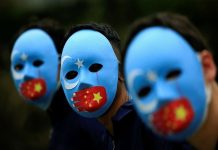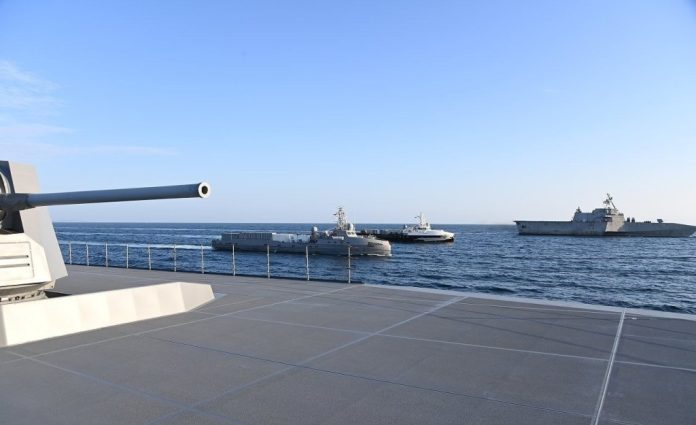Disappearance is the renewed method of the Chinese authoritarian regime. No word from the state sources is heard as to why a disappearance is engineered, nor any clue as to how the kith and kin of the disappeared person have reacted.
Disappearance of political opponents is understandable, and instances of such happenings are not far to seek. But it is somewhat bizarre to know that the shadow of disappearance is now looming large over the men in olive green.
Eliminating senior officers for reasons of corruption, flawed political loyalty, or both was the main agenda of Xi as Central Military Commission chair in 2012. Under the label of the anti-corruption drive, he netted at least 45 high-ranking military officers between 2013 and 2016, including some retired military brass.
The recent case is General Li Shangfu, the defense minister and state councilor, a senior Chinese Cabinet member with a responsible role. He disappeared on September 14-15.
He was suddenly pulled out of an annual meeting with Vietnamese defense leaders scheduled for September 7-8. Authorities blamed a health reason for the 65-year-old General’s sudden pull-out. Nothing was said about the ailment or the hospitalization of the General.
Corruption Charges
President Xi Jinping, a keen student of Chairman Mao, firmly adheres to his master’s theorem that power flows from the gun barrel. He appears to have built his authority primarily on his sweeping overhaul of the People’s Liberation Army (PLA) in the past decade. He finds his power reinforced by the unanimous approval of the general assembly of his third term in office.
Reports say that General Li had been earlier detained for questioning. This is the first time that such a fate has befallen a sitting member of the Communist Party’s Central Military Commission, which President Xi heads.
He was associated with weapons development and procurement organ, a fertile ground for corruption. He has spent three decades at China’s leading satellite launch center and became its director.
In 2018, the US imposed sanctions on him for his role in China’s purchase of Russian combat aircraft and missile equipment. Notably, when he was questioned in July, the department announced a fresh crackdown on corruption.
Other Reasons
The other reason for his removal could be his failure to implement Xi’s orders, a breach of military discipline because Xi is the supreme commander of Chinese defense forces.
Ignoring the presumptuous reason for bad health, there is much circumstantial evidence to show how authoritarianism works under President Xi.
Rocket Force
The Rocket Force is responsible for China’s Inter-Continental Ballistic Missile force and is thus the People’s Liberation Army’s (PLA’s) most sensitive service.
In July, an announcement was made saying that General Li Yuchao, the commander of the Rocket Force, and General Xu Zhongbo, its political commissar, had been dismissed. As usual, no reason was given.
But the rumor making rounds was that they were under investigation for corruption or leaking military secrets, although they were said to be close to Xi.
Surprisingly, around September 1, came the news that Major General Cheng Donfang, the president of the PLA military court, was dismissed after just being at the new post for only eight months. He is a graduate of the prestigious Peking University and previously served as head of the legal department and spokesman of the PLA garrison in Hong Kong.
Interestingly, all four dismissals are linked to the Rocket Force, for which the military budget has recently expanded. It is reportedly overseeing a significant upgrade of China’s nuclear arsenal.
Big military spending has often led to embezzlement, kickbacks, and other misuse of funds. If that is the case, one can imagine corruption on a large scale in the defense establishment of China.
That is why there has been an overhaul of commanders of the Rocket Force in recent days. General Wang Hoeben, a career naval officer, is the Force’s new commander, while the new political commissar, General Xu Xicheng, comes from the air force.
An essential question that the commentators are studying under the existing phenomenon of a purge in the civilian and military administration is whether removing many experienced and influential commanders and officers can negatively impact China’s political and military structure. The standard view is that China always keeps the second rung ready to take over the charge if circumstances demand.
There may be dissatisfaction here or there, but so far, no organized opposition to President Xi has been reported from dependable sources. Even there is no palpable negative impact on PLA, leaving aside the economic downslide that is noticeable now. Crippling local-government debt and a rapidly aging population are the woes that will have to be taken care of.
“The purges are also considered rich pickings for President Xi’s foreign critics as he seeks to portray China’s political system as more stable and effective,” wrote a South China Morning Post commentator.
All is not well in China, especially after Xi Jinping was chosen for the third term. Corruption has long been a problem in the military, particularly since China began liberalizing its economy in the 1970s, noted James Char, a research fellow at Singapore’s Nanyang Technological University who studies the relationship between the CCP and the military.
Every year, China spends more than a trillion yuan on the military, with some going towards procurement transactions, which, for national security reasons, cannot be fully revealed. China’s one-party centralized system further compounds this lack of transparency.

































